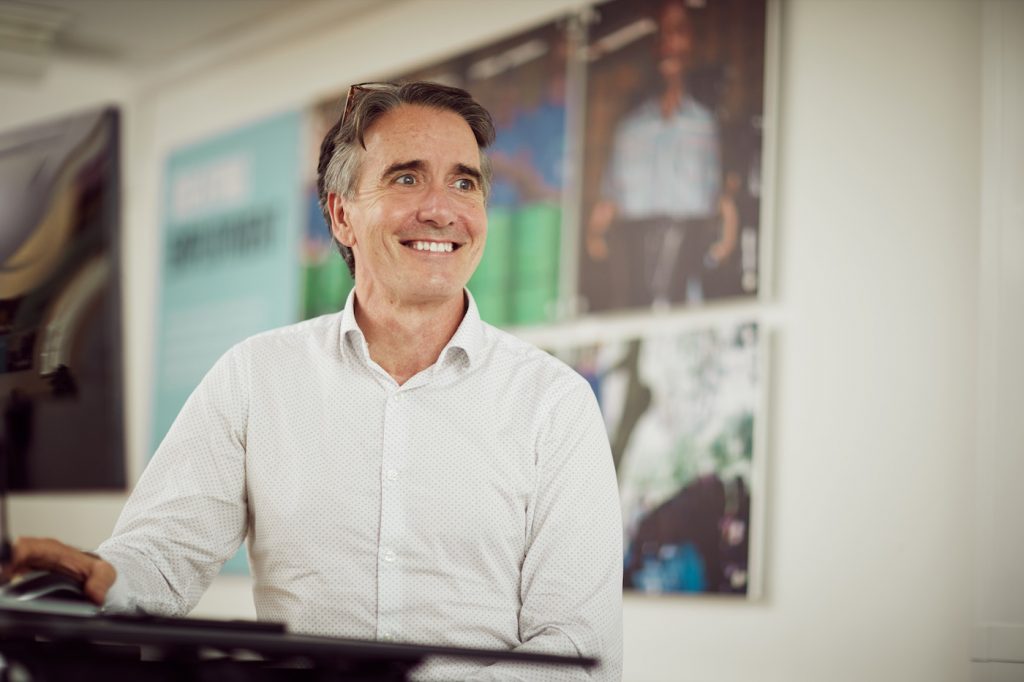Carbon offsetting is a robust, immediate and measurable way for SMEs to take responsibility for their current carbon footprint now, whilst on their journey to Net Zero. Yet many businesses (both large and small) are still reluctant to offset their carbon emissions. Why? Largely because of the many misconceptions that are out there around offsetting.
 In this article we aim to bust seven myths that are currently out there regarding carbon offsetting so that we can give your small business the facts it needs as it journeys towards Net Zero.
In this article we aim to bust seven myths that are currently out there regarding carbon offsetting so that we can give your small business the facts it needs as it journeys towards Net Zero.
1. SMEs are too small to offset
It’s not the size of your business, but the size of your carbon footprint that counts. Any business, no matter what size it is, can make a difference in tackling the climate crisis and work towards becoming Net Zero. Climate change is the single biggest issue that the world faces today, and we all have to play our part.
The UK Government has legislated to achieve Net Zero for the UK as a whole by 2050. Reducing emissions to Net Zero by 2030 gives us a better chance of keeping warming within the 1.5 degree target set out under the Paris Agreement. Multiple companies, of all sizes, have pledged to achieve Net Zero by 2030 and are currently considering how they can also influence their customers and supply chain to reduce their emissions too.
2. Offsetting won’t tackle climate change
Certainly, offsetting alone will not tackle climate change. However, as experts around the world agree, it is an essential part of our journey to Net Zero. Most companies will not be able to reach Net Zero without it as there will always be some stubborn or hard to address residual emissions.
We need to move to a low-carbon world as quickly as possible. But even in the best-case scenario, this transition will take time. As such, while we work on reducing our emissions (often involving long term systemic changes to decarbonise existing business models), we need to do something about the carbon emissions we are producing today. Funding an equivalent amount of carbon emissions reductions through voluntary carbon offsetting is an effective way to take responsibility for this carbon footprint and buys us time while we develop new processes and technology to reduce it.
Organisations like WWF, SBTi, Oxford University, the UN and the Taskforce on Scaling Voluntary Carbon Markets, all agree that carbon offsetting plays a vital role on our journey to Net Zero. The conversation has moved on from ‘should companies offset emissions?’, to ‘how should companies offset emissions?’.
3. Carbon offsetting is a step-by-step process
Businesses need to take full responsibility for all the emissions they produce both today and tomorrow. On the journey to Net Zero, a business will need to measure and disclose their emissions and set a science based target for reduction. Businesses need to take action to reduce their emissions in line with what the science says is needed and then offset what is left- their residual emissions. It’s not a step-by-step process, the key is actually to drive actions simultaneously and at pace, and then modify and adjust moving forward.
In short, we are up against a deadline to tackle climate change, and there isn’t time to take things one step at a time. Ultimately, it is today’s emissions that are causing tomorrow’s climate change and we need organisations to take full responsibility by offsetting their carbon emissions right now.
4. Offsetting is just a guilt free way to carry on emitting
The key here is for SMEs to set and deliver against carbon reduction targets, as well as offset their emissions. It’s not either/ or, it’s both/and.
The climate emergency is urgent, and we need to do everything in our power to tackle it collaboratively. And the truth is, businesses who offset emissions are putting a voluntary tax on their carbon pollution that will only increase over time. This helps focus the whole business on reducing this cost through reduction and also (perhaps most importantly) initiates behaviour changes from the top. In fact, research shows that the typical offset buyer cut almost 17% of their scope 1 (direct) emissions, while the typical non-offset buyer reduced scope 1 emissions by less than 5% in the same year.
5. Working from home means our footprint is low
It’s not just air travel or commuting you need to think about when it comes to your carbon footprint. In fact, digital footprint is a growing problem, especially in light of the pandemic. In our rush to stream, send emails, run video calls, store data and update our social media posts, we’ve lost sight of how energy-hungry the digital industry really is.
The internet and digital technology involve far more than just the energy required to run our devices. Rather, the storing of data, otherwise known to us all as ‘the cloud’, is one of the worst offenders of all. Far from being invisible, the cloud and the technical components to run it, generate extremely high emissions.
The carbon footprint of our gadgets, the internet and the systems supporting them accounts for 3.7% of global greenhouse emissions, similar to that of the airline industry. And these emissions are predicted to double by 2025 too.
6. Going climate neutral is just for CSR
Over the past two years, there has been a substantial shift in how many corporations think about the impact they are having on the environment. An increasing public awareness of climate change and changing consumer behaviours has catalysed this shift, which when combined with pressures coming from investors and Governments, has driven increasing climate ambition and action in the investment space. So much so in fact, that companies that have previously engaged with climate change mitigation mainly due to corporate social responsibility (CSR) are now beginning to see it as a business-critical issue.
Going Climate Neutral can deliver a range of business benefits – from demonstrating environmental credentials and building customer confidence in your brand, to improving staff engagement with your broader sustainability programmes. It can even deliver business growth opportunities – building resilience insupply chains, supporting growth in key markets and helping to launch new products and services. As Mark Carney has previously stated, “firms that align their business models to the transition to a carbon-neutral world will be rewarded handsomely; those that fail to adapt will cease to exist.”
7. Going climate neutral is the same as Net Zero
Going Climate Neutral today is a way for companies to take immediate action whilst they set themselves on course to meet their longer-term Net Zero target.
Going Climate Neutral by offsetting all emissions through high quality, independently verified carbon reduction (avoidance and removal) projects is the only way a company can take full responsibility for its current carbon footprint. This is because going Climate Neutral today compensates for a company’s existing carbon footprint immediately. This status should then be maintained whilst the firm takes steps to reduce its emissions as close to zero as possible, in line with a Science Based Target. In time the size of that company’s footprint will reduce and the amount they need to compensate for will reduce. The organisation will become Net Zero when it reaches its science-based carbon reduction target and compensates for all its remaining emissions through carbon removals projects. They could then even go as far to work towards becoming carbon negative and take even more of a competitive share.
In busting these myths, it’s our aim to empower businesses of all sizes, to take responsibility for their climate impacts. Any business, even if it is small or just starting up, can make a difference in tackling the climate crisis and work towards becoming Net Zero. Climate change is the single biggest issue that the world faces today, and we all have to play our part. Ultimately is it today’s emissions that are causing tomorrow’s climate change and we all need to take full responsibility for them right now.
Words by Vaughan Lindsay, CEO of ClimateCare



